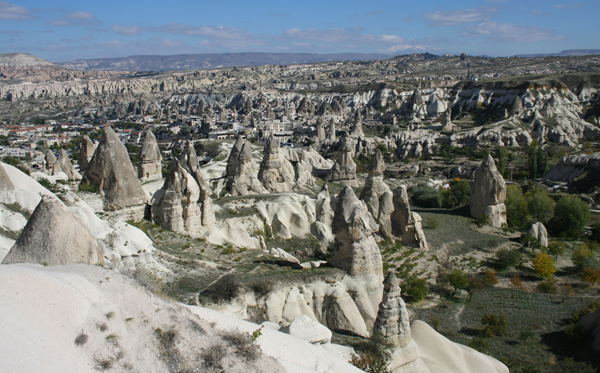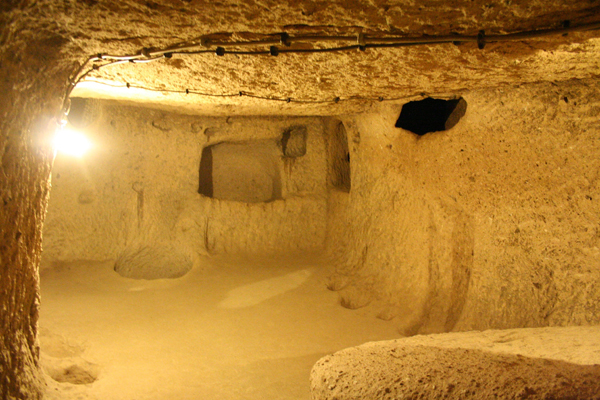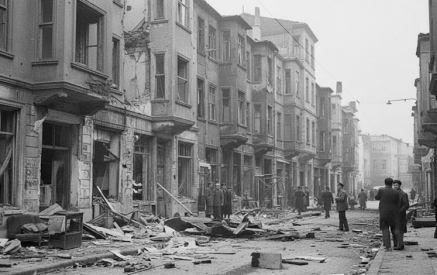The Turkish guide did not present anything about Armenians in Cappadocia
As we have already informed, “Aravot” was participating in the bus-tour organized for the journalists and bloggers from Armenia and Turkey under the “Eurasia Partnership” Foundation and EU financial support. One of our stops in Turkey was in Cappadocia (“land of the beautiful horses”). We visited the ancient Byzantine city, castles, the first “carved-from-rock” churches, and the underground cities where the first hidden Christians were hided from their pursuers. We were walking in this tour city and listening to the guide’s, Türkan Mumku’s records about this ancient place. We were attracted by icons made in ancient times in the “carved-from-rock” churches. We and many tourists entering the churches were regretted to see how the eyes of the Blessed Virgin Mary, Jesus Christ and the apostles were erased with barbarity, the icons were damaged. The guide shortly hinted that the city was damaged by Seljuk Turkish soldiers, who invaded the city.
Cappadocia in our sources is mentioned as Gamirk, and although we are expecting to hear from our guide mentioning about Armenians, will reach Tigran the Great, whose troops have been here twice during the achievements, will present how in the 11th century in Gamirk, especially in the city of Caesarea, the majority of the population were Armenians, and the first seeds of the Kingdom of Cilicia were fermented here, nevertheless did not talk about Armenians, even though it was known that most of the attendees were Armenians. “Aravot” talked separately with the Turkish guide Türkan Mumku and presented that the Armenian sources repeatedly indicate the presence of Armenians in Cappadocia.
Read also
Our interlocutor said that in the part where we were, there have been no Armenians. “In Caesarea, which is not so far from here, there is a big city where many more Armenians lived. Here, in Cappadocia, mostly Greek orthodoxies lived, – said she and added, – even today we have an Armenian church in Caesarea.”
As historian, we were also interested to know what was the Turkish guide taught by their professors about the Armenian Christians living here. “I know that during the Ottoman Empire, they have had some problems here. Yes, our professors have told us some things that Armenians have had problems here since the ancient times, there were problems between Armenians and the Ottoman Empire and they have fought against each other. People believed that Armenians have killed our mothers, our children, this is very bad,” said the Turkish guide and deemed it necessary to add, – but now we are happy, we do not have any problems with each other.”
HRIPSIME HOVHANNISYAN
Photos by Hüseyin Hayatsever


























































